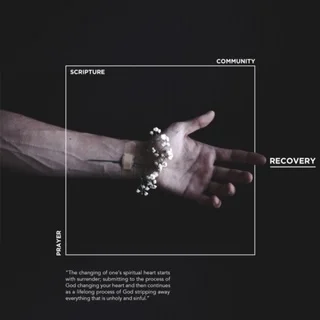When I read a book, I often read the table of contents and a few excerpts of the beginning and end. This usually irritates my friends, as they ask in shock “What happens if you read a spoiler?” Here’s the thing, I don’t mind, because I find comfort in setting the tone with what to expect as I prepare to invest the next month reading this novel. This brings me some form of comfort knowing that before I commit to this book I know a little bit about what I’m getting into. If the book doesn’t have enough excitement, or the ending feels unresolved, I can simply close the book and return it to its shelf. As believers and readers of the Word, we often get the benefit of seeing the full story from a bird’s eye view (beginning, middle and end). One could assume that this is how God might see our lives, since we were known before we were even conceived (Jeremiah 1:5). However, we don’t get this same vantage point when it comes to looking at our own lives. Whether we are overflowing with joy in a given season or tormented with pain in another, there isn’t a table of contents/ cheat sheet that reveals to us what to expect next in our lives. So, in the middle of pain, how do we persevere when we can’t always see the finish line?
The Story if Job:
In the book of Job, we see a fine example of a man who was able to persevere. Job, was known as a righteous man of God, and was considered the greatest man alive. He was wealthy with a life full of abundance. He had 10 children, a herd of over 10,000 livestock, and too many servants to count. One day, God admires Job for his blameless, upright, God-fearing and evil-shunning life. Satan devises a plan to ruin Job. He challenges God, by questioning whether Job is really all these things because God has blessed him with abundance or is he righteous from a place of love for God. To shatter this theory God allows Satan to take control of all Job has, but Satan is not allowed to touch Job. (Job 1: 8-12) In the span of one day, multiple messengers reported to Job that all his livestock had been stolen or killed, his servants had been slaughtered by enemies, and a heavy wind toppled his home killing all 10 of his children inside instantly. Job tore his robe, shaved his head, and plummeted to the ground to worship God in his overwhelming pain. While, praise and worship were Jobs initial reaction; I wonder if we could say the same. What is our reaction when we face suffering?
Satan returns, when Job still hasn’t cursed God, and asks God to let him afflict Job with physical sickness. God allows it, so long as Satan doesn’t kill him. Job is afflicted with painful boils, from head to toe. Job begins to curse the day he was ever born, but even in deep pain (physical and emotional), Job never once cursed God as Satan had initially presumed he would. But, the story doesn’t end here…
Why is it that “God Fearing” people suffer?
Why would God allow a righteous man to suffer, when God himself called him good and blameless? Isn’t God just? Was there a purpose to Job’s suffering? Perhaps these questions are fluttering through your mind at this moment. Why does God allow bad things to happen to those that have placed their trust in Him? Job had some of these same questions. So, he looked anxiously for answers from his ‘wise’ friends, Eliphaz, Bildad, and Zopahr. Through much of this story, Job and these three friends have a series of back and forth debates, filled with sarcasm, questions, frustrations, and even judgement about why Job was suffering. His friends questioned his righteousness and whether he was truly upstanding. They questioned his fear of God and if he was really shunning evil. All that Job’s friends could see was the destruction that surrounded his life, and they believed God to be just. They believed those who those who sowed good received good, and those who sowed evil received it. However, their view of God seems to be a little formulaic, wouldn’t you say? It would be easy to accept this as a predictable oversimplification, or hack, for how to gain and sustain God’s favor. However, we know that grace could never be earned, and It was and is a gift (Ephesians 2:8-9). Knowing this, do we often still try and fit God in a box? We as Christians can sometimes assume that if we follow all the “rules” we will get exactly the result we hoped for, free of pain and suffering.
Even still, Jobs friends concluded that Job must have done something severely wrong to deserve this kind of punishment, and they believed “good” people don’t receive punishment without reason. So, they blamed Job; talk about encouraging and uplifting friends, huh? Even through his doubts, confusion, and questions, Job maintained his belief of innocence. He was mocked, questioned, and doubted by his friends who were supposed to be full of wisdom. Even then, Job showed perseverance in challenging the wrongful accusations by his friends, never blaming God. Sometimes, we look for answers or comfort externally, and forget that the world doesn’t hold the full truth.
Yet, this still doesn’t fully answer our initial question.
Are we asking the right question? (God’s Answer)
Continuing in our story, quietly listening is Elihu, the youngest of these men, as Job, Eliphaz, Bildad, and Zophar debate. Elihu timid at first, due to his age, reminds these “wise” men that age is not the only indicator of wisdom, but it is through the spirit of God wisdom is given. He proceeds to counter all their arguments by explaining that we all lack complete knowledge about God’s ways. We only have pieces of it, and He does great things beyond our understanding. We see here that kernels of wisdom can come from the most unlikely places.
Then, God speaks to Job and questions Job and his understanding of all God has created. God goes into great detail about forming life, the function of the sea, how animals survive, the great Behemoth and Leviathan beast, and much more. For 3 straight chapters, God questions Job’s right to question Him, the Creator. A strong reminder that “His ways are not our ways.” Job sits there in awe and listens to the things he doesn’t know. When asked if Job was there when God created all these things which are good. Job, sheepishly, acknowledges how unworthy he is of understanding how the universe operates, and that his knowledge and wisdom is finite compared to his maker’s.
What is interesting here is God reveals to Job (and us) that he may be asking the wrong question. He invites us to ask the more important question “Do we and can we fully understand God’s ways/plans for us?” Job shows us that we may not be able to (at this time), but our perseverance in our season of suffering does not go unnoticed. We must also remember that while we may not be able comprehend the infinite ecosystems working around us for our good, God is working in our favor, and He is inviting us to step back and trust in his sovereignty. (Romans 8:28)
Perseverance to Restoration:
After Job submitted to God’s Sovereignty, understanding that he does not understand everything the way God does, God restored and doubled everything that Job had lost. This included 10 new children which he watched grow alongside 4 generations of his family after them. The book closes with Job at age 140, “And so Job died, an old man and full of years” (Job 42:17). While our restoration may not look exactly like Job’s, we can be sure it will come in this lifetime or the next. (1 Peter 5:10) Maybe your restoration is not a material thing, but maybe it’s your faith…confidence…or even a relationship.
What a powerful ending! Job persevered even with his fears consumed him. He humbled himself when he was at his lowest, and in the end he lived a long and more prosperous life. Job’s story reminds us that unfortunate circumstances happen even to the most faithful, and we cannot judge anyone (especially their spirituality) based on how far they have fallen. We only have a part of their story. As we all fight our own battles, we are remindedthat our struggle may be tough in this season, but it is temporary, and our perseverance will be rewarded. Job never once abandoned God, in fact he engaged God in questions, even though they may not have been the right ones.
Maybe, today you are asking yourself, “Why me?” “What have I done to deserve this?” “What must I do to get out of this situation right now?” Through Job’s story, God reminds us that there are things beyond our control and understanding. Perseverance, by way of faith, is all the understanding and truth we need to endure this season, and it is just that…A season! So, what can we do when we are dealing with lack of clarity or uncertainty in this season?
1. Praise God– Reorient yourself back to God. Jobs initial reaction was to praise God in his darkest hour. Even when all he could see, or feel was pain and suffering.
2. Listen for God’s Voice– God wants to remind you how big He is, and that no matter your circumstance, He is bigger than it. He’s got your back. (Jeremiah 29:11)
3. Wait prayerfully and patiently– Prayer is an essential form of meditation that reorients your focus on God and allows you to hear His voice. The word is very clear that it wasn’t until after Job prayed that he receives his blessing (Job 42:10)
You may not try to read a head in a book or story like I do, but you may still be trying to find comfort in knowing what is next. Maybe God is not showing us the full picture, because he is inviting us to help him write our story as he guides us through his gifts of grace and fee will. He wants to show and remind us he is with us every step of the way, and that is all we need to persevere. “In their hearts humans plan their course, but the Lord establishes their steps”. (Proverbs 16:9)

























